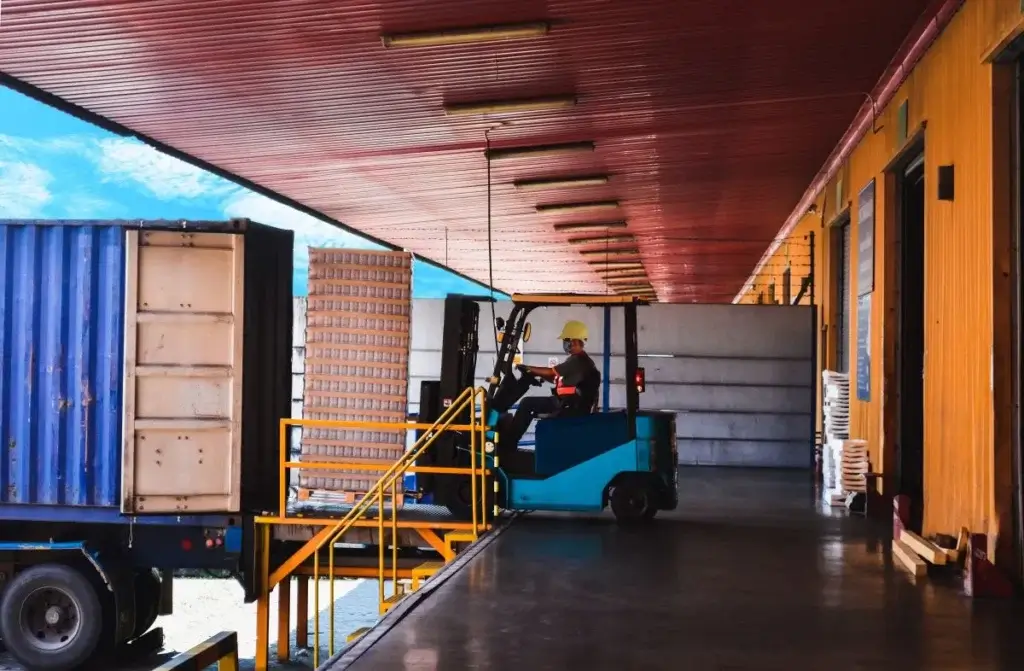In June, two major trade developments took place involving the UK, aimed at improving its export performance and addressing post-Brexit trade imbalances. These included a sanitary and phytosanitary (SPS) border agreement with the EU and a partial tariff deal with the US, both expected to have implications for key sectors such as agri-food and automotive logistics.
Border checks overhaul with the EU
Speaking at the Multimodal 2025 event in Birmingham on 17 June, Logistics UK President Phil Roe highlighted that UK exports to the EU fell by 23% between 2017 and 2024, dropping from 106.4 million to 82.4 million tonnes. In contrast, imports from the bloc dipped just 5% over the same period.
“The data shows that our reliance on the EU is pretty much the same as it was before EU Exit but our exports to the bloc are down,” Roe said.
The disparity is particularly acute in the agri-food sector. Exports of fish, meat, dairy, eggs, fruit and vegetables have all declined since the introduction of post-Brexit SPS controls.
“These controls have significantly affected trade in perishable and animal-based products, particularly between GB and the EU,” Roe noted.
He explained that UK exporters were affected earlier due to the earlier implementation of checks, while imports from the EU faced fewer hurdles until 2024.
A UK-EU summit in May produced a political commitment to develop an SPS agreement based on dynamic alignment. According to Logistics UK, this would remove many of the current veterinary checks and speed up border processes, especially for time-sensitive goods.
“It is essential that this agreement is implemented as swiftly as possible and has input from business at every stage so businesses and the wider economy can start reaping the benefits of smoother trade,” Roe urged.
US agrees partial tariff relief
Meanwhile, the UK secured a separate deal with the United States on 16 June, with President Donald Trump signing an order to implement tariff reductions on a limited range of goods.
The deal allows up to 100,000 UK-built cars to enter the US at a reduced 10% tariff, rather than the 25% levy introduced earlier this year. This offers UK carmakers a relative advantage over competitors from the EU, who still face the full tariff.
However, the agreement falls short of expectations in other sectors. Steel and aluminium tariffs remain at 25% for the time being, with US authorities setting a deadline of 9 July for further negotiations. The UK government has said it will seek to reduce these charges to 0% for core steel products.
Other terms include the elimination of a 20% tariff on US beef imports, with the quota raised to 13,000 tonnes. Additionally, the UK has granted a tariff-free quota of 1.4 billion litres for US ethanol, down from a previous 19% duty. These concessions have raised concerns among domestic producers, with ABF Sugar warning of potential job losses if support measures are not introduced.
Mixed picture for logistics sector
The combined effect of the two agreements presents a mixed outlook for the logistics sector. On the one hand, hauliers specialising in agri-food exports to the EU may benefit from reduced border friction if the SPS reforms are enacted swiftly. On the other, uncertainty surrounding US steel tariffs and competitive pressures from tariff-free US ethanol and beef may dampen enthusiasm in some quarters.
The limited scope of the US deal has also attracted criticism. While Prime Minister Keir Starmer described the agreement as a “very important day” for both countries, opposition leaders labelled it a “tiny tariff deal” that fell short of full trade liberalisation.
For now, logistics operators are left navigating a complex post-Brexit trading environment. As Roe concluded in his speech, reducing trade friction at borders is crucial for enabling the sector to make a full contribution to national economic growth.











